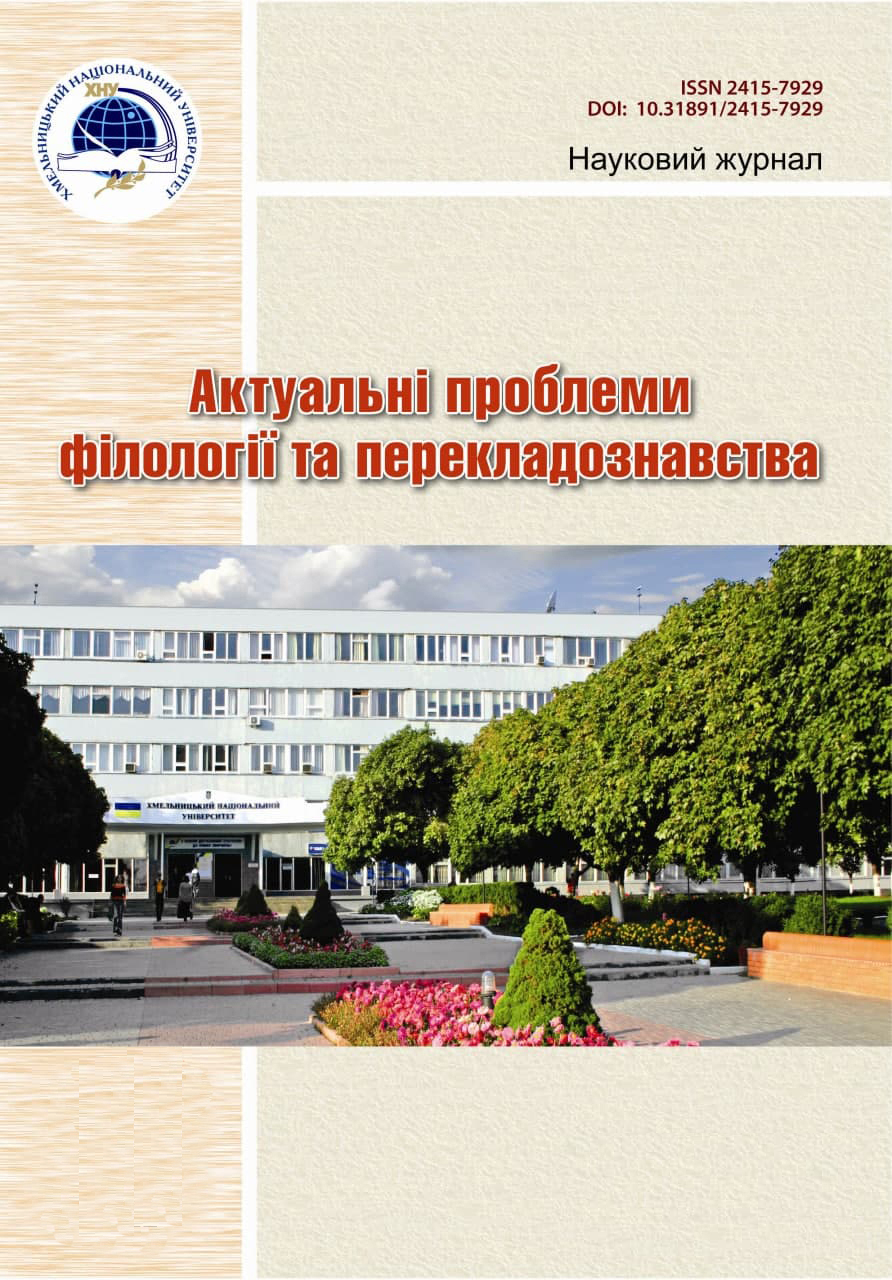MODAL VERBS AND THEIR EQUIVALENTS IN ENGLISH TRANSLATING INTO UKRAINIAN
DOI:
https://doi.org/10.31891/2415-7929-2021-22-5Keywords:
modality, perfect infinitive, equivalent, translation, meaning, correspondence, roleAbstract
The article deals with the translation of modal verbs from English into Ukrainian, the role of these verbs, their meaning and importance of the choice of a correct equivalent. The authors demonstrated a difficulty translating a combination of modal verbs and their equivalents with conditional mood and perfect infinitive. The specifics of peculiarities of translation of modal verbs and perfect infinitive and ways of presenting of modality using lexical means taking into consideration the rules of their use and their context has been defined. It was shown the importance of equivalents of modal verbs when it is necessary to use a question or negative sentence. That’s why it is very important to remember about many alternative words showing the same meaning. Modal verbs and their equivalents garner attention of many scholars. Their multifarious feature, specifics and functional peculiarities have not been investigated perfectly yet. Modality is of high importance to understand and make a true translation. Modality maybe suggested as a combination of relation of content to reality and relation of a speaker to the essence of his/her saying. Modality is an extralinguistic category showing relation of a speaker to the reality having its means of expression in Ukrainian – phonetic, lexical, grammatical and lexico-grammatical. Modal verbs can express confidence, doubt, assumption, wish, possibility, uncertainty etc and all these expressions should be well recognized and understandable to translate them into Ukrainian using specific means of translation. The authors showed the importance of knowledge and understanding not only English modal verbs and their meaning and roles but also confidence in their Ukrainian equivalents, that is to say using universal and not universal means of expression of modality, intonation, particles, parentheses, exclamations. Polyfunctional characteristic of some modal verbs should be taken onto consideration. It was demonstrated using sentences with modal verb should which is a polysemantic verb used in grammatical and lexical spheres. Therefore, lexical meaning and grammar should be combined and taken into account to have an adequate true translation.
Downloads
Published
Issue
Section
License
Copyright (c) 2021 О. БОДНАР, А. БИЧОК (Автор)

This work is licensed under a Creative Commons Attribution 4.0 International License.

